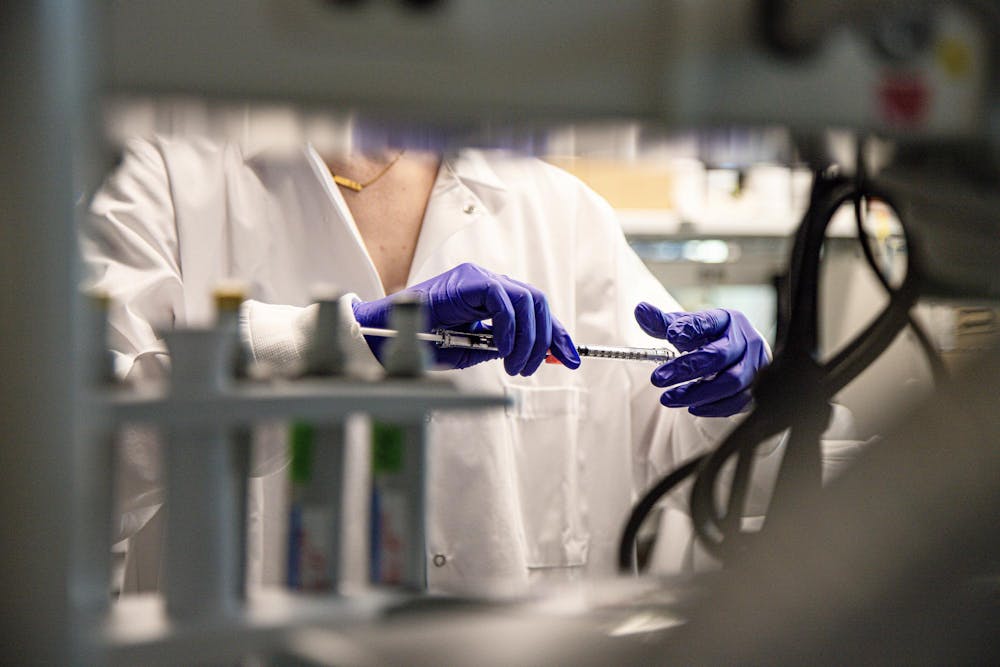A team of UNC-Chapel Hill researchers were recently awarded a $10 million grant from the Advanced Research Projects Agency for Health to further develop the Cancer Identification and Precision Oncology Center at UNC.
According to a release published by the UNC Lineberger Comprehensive Cancer Center, the CIPOC plans to develop a health learning system to improve cancer care quality.
Using artificial intelligence from electronic health and medical records to identify new cancer cases, the CIPOC plans to create an “accessible, adaptable system for health providers across diverse locations and resources," the release said.
Caroline Thompson, an associate professor of epidemiology at the Gillings School of Global Public Health, said the grant is for developing methods to better utilize clinical data from electronic records to determine when cancer is diagnosed, who is affected and how they're being treated. These methods will also help detect patterns of healthcare treatment in the UNC System and extract meaningful clinical details about cancer patients. This data will support applications like clinical trial recruitment, quality improvement and research.
“$10 million for two to three years of work is a really exciting, big milestone for the University to be able to have that level of resources at their disposal to support sort of inter-institutional initiatives,” she said.
“The research will be conducted by faculty from across UNC, not just at UNC Health. Also, the proposed benefits could improve how cancer care is delivered across North Carolina and the country — and not just UNC Health,” University Health Media Relations wrote in an email statement to The Daily Tar Heel.
Thompson said that the motivation behind this grant is surveillance — a way that cancer patients are tracked, both at the hospital level and the state level. She explained that cancer is classified as a reportable disease, meaning that when someone is diagnosed their information is typically entered into a database.
“CIPOC will utilize AI tools, including large language modeling, to quickly standardize, harmonize and link structured and unstructured data from multiple sources, enabling more precise tracking and treatment for different cancer types,” the Cancer Center release said.
Thompson said the data is often used for clinical trial recruitment and research purposes, however, accessing this data can be a slow process and the goal is to find ways to use the available data more quickly.



